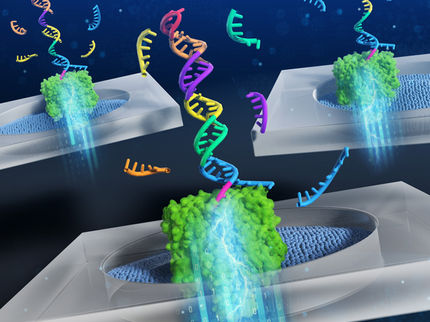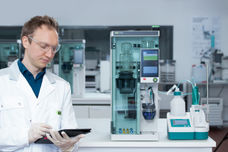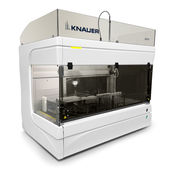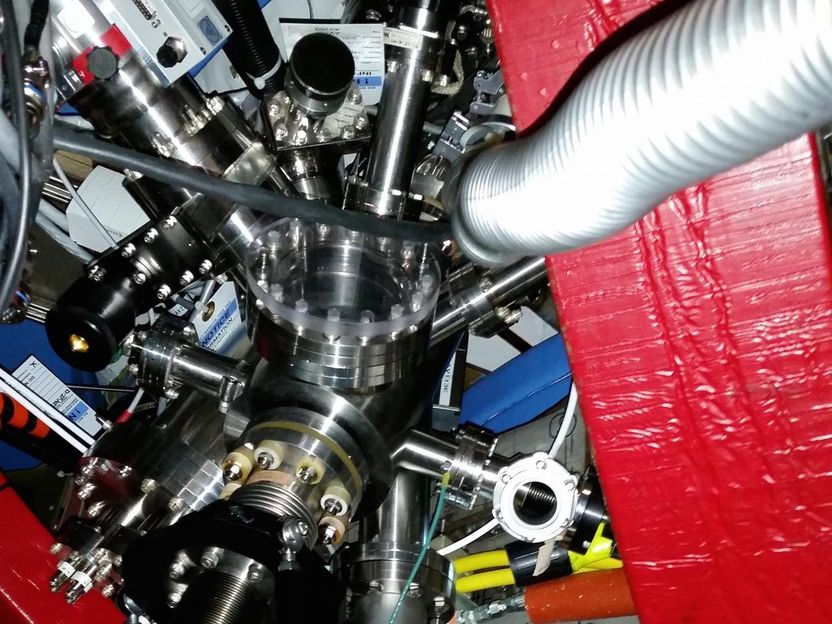Nanopolymer-modified protein array can pinpoint hard-to-find cancer biomarker
A Purdue University biochemist has developed a novel method for detecting certain types of proteins that serve as indicators for cancer and other diseases.
Glycoproteins are formed when sugars attach to and modify a protein. In some cases, a combination of glycoproteins present in a sample of blood or urine could be an indicator of disease or cancer.
But those glycoproteins can be elusive. There has been no antibody to differentiate between them and regular proteins. And the complex and bulky sugar groups can make it difficult for even standard protein-detection antibodies to find their targets.
W. Andy Tao, a Purdue professor of biochemistry, has developed a novel protein array, a high throughput platform to analyze multiple proteins in parallel, for separating glycoproteins from unmodified proteins. Tao also demonstrated its effectiveness for identifying glycoproteins associated with bladder cancer.
Tao developed a nano-sized polymer, called polyGPA, that attaches to the sugar groups of glycoproteins and brings them to the surface of the protein array. The nanopolymer also repositions the glycoprotein so that the antibodies used to detect unmodified proteins can better reach their targets.
“There are many sugar types and combinations. Sugar modification can be a very important indication of disease state,” Tao said. “A panel of proteins modified by sugars may be an indication of a particular disease.”
Tao said tests showed his method is 17 times to 25 times more likely to identify proteins that might have otherwise been missed in regular testing procedures. He was also able to identify glycoproteins associated with bladder cancer in a urine sample.
“It is possible to use our platform to identify these sugar-modified proteins as a biomarker for bladder cancer,” Tao said.
Tao will work to commercialize his nanopolymer-modified protein array through his company, Tymora Analytical Operations, which operates in the Purdue University Research Park. The company makes the pIMAGO nanopolymer, which can be used to determine whether cancer drugs have been effective against biochemical processes that can lead to cancer cell formation, and polyMAC, a nanopolymer that helps scientists retrieve and study proteins that are undergoing processes related to cancer cell formation.
Original publication
These products might interest you
See the theme worlds for related content
Topic world Protein analytics
Protein analytics provides a deep insight into these complex macromolecules, their structure, function and interactions. It is essential for discovering and developing biopharmaceuticals, understanding disease mechanisms, and identifying therapeutic targets. Techniques such as mass spectrometry, Western blot and immunoassays allow researchers to characterize proteins at the molecular level, determine their concentration and identify possible modifications.

Topic world Protein analytics
Protein analytics provides a deep insight into these complex macromolecules, their structure, function and interactions. It is essential for discovering and developing biopharmaceuticals, understanding disease mechanisms, and identifying therapeutic targets. Techniques such as mass spectrometry, Western blot and immunoassays allow researchers to characterize proteins at the molecular level, determine their concentration and identify possible modifications.




























































